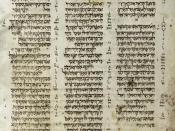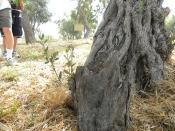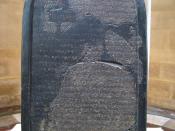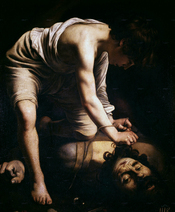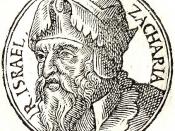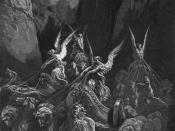Conceptions of Davidic Hope in Ezekiel, Zechariah, Haggai, and the Chronicles by Greg Herrick, Th.M.
gregh@bible.org Introduction The following paper will concern itself with an investigation of certain texts from Ezekiel, Zechariah, and Haggai. Davidic hope in the Chronicles will also be examined. Most of the concepts developed in these books emerged during times of national distress for Israel and reflect much of the hope previously developed in the Old Testament. There are five previous articles in this series that may be consulted on this website. They are: (1) An Early Text for Later Messianic Conceptions: A Look at Genesis 49:8-12/Sept. 10, 1998; (2) "A Star Will Come Out of Jacob"ÃÂ: Early Regal Images in Numbers 24:15-19/Sept. 28, 1998; (3) Regal/Messianic Hope in Deuteronomy, 1, 2 Samuel and 1, 2 Kings/Oct. 5, 1998; (4) Conceptions of Davidic Hope in Psalm 2, 45, and 72/Oct. 19, 1998; (5) Conceptions of Davidic Hope in Psalms 89, 110, and 132/Oct.
27/98.
Key Texts in the Prophets Ezek 17:22-24; 34:23-24; 37:24-28 The promise to which Ezekiel refers in 17:22 is the promise to revive the fallen Davidic empire back on Israelite soil after the exile carried out by Nebuchadnezzar. The messianic imagery of a "tender shoot"ÃÂ (Er^) in Ezekiel 17:22 is similar to Isaiah's messianic designations of a young shoot (11:1, rf#j) and rx#n}) and Jeremiah's and Zechariah's "branch"ÃÂ (jm^x#, Jer 23:5; 33:15; Zech 3:8; 6:12). It is more likely that En^ connotes humble origin rather than some aspect of moral weakness which does not fit the context. The scope of the rule of this figure will be universal. Bloch argues that the reference to [n`K*-lK* rwP)x! lK) ("every bird, every winged thing"ÃÂ) in v. 23 is not symbolic of the nations, but "as in 31:6-7 their presence in such vast numbers merely illustrates the tree's expansiveness."ÃÂ Alexander, on the other hand, suggests on the basis of passages like Dan 4:17, 32; 34-37 and Matt 13:31-32 that they are symbolic of the nations. Against Bloch is the specific mention of the nations in 31:6 (
Ezek 34:23-31 and 37:15-28 speak to similar issues. The prophet envisions an age when instead of the faithless and greedy shepherds over Israel (cf. 34:2-5), there will be a day when God will place over his people one shepherd"ÃÂan ideal David as it were"ÃÂwho will exhibit David's characteristic of faithfulness. The reference to dj*a# hu#r)
Thus in these passages in Ezekiel we have notions of an idealic Davidic ruler to come who will unite all Israel and Judah as one nation under their sovereign YHWH in the land he had promised them. He will cleanse them and be their God"ÃÂthe same kind of covenant language we have associated with Israel's separation unto YHWH at Mt. Sinai (Ex 19:6; 6:7; cf. also Deut 7:6; Ezek 11:20). There is, therefore, a close relationship between the Abrahamic and Davidic promises in Ezekiel's conception of the future. Thus Ezekiel envisions the national restoration of Israel to her land and God, but this is not simply with Israel in mind for YHWH has stated that Israel will be restored so that the nations of the earth may know of his holiness. Indeed, the positive imagery of the various kinds of birds enjoying the shade of the tree in Ezek 17:23-24 is not the language of subjugation, but instead suggests that while arrogant kingdoms will be made low, blessing will come to the Gentile nations under the Davidic king"ÃÂwithout Israelite hegemony over them.
Zech 3:8; cf. 6:12-13; 9:9-10; 12:10 The prophet Zechariah has much to say in terms of the restoration of Israel and messianic hopes intimately connected with that. He refers to the coming messiah as the "branch"ÃÂ (jm^x# in 3:8 and 6:12), the same language used in Isa 4:2 (hw`hy+ jm^x#), 11:1 (rx#n}), and Jeremiah 33:15 (hq*d*x= jm^x# dw]d*l= j^ym!x=a^ ayh!h^ tu@b*W
The Gentiles, as well Jews of the dispersion, will play a role in the future building of the temple which will be a clear indication to the people that Zechariah has been sent by the Lord (6:15). There is a clear connection between the fulfillment of Davidic promise and the restoration of the Jewish nation, as well as the blessing of the nations in 2:11-12. Thus the rule of the Davidic king will be from sea to sea and from the River to the ends of the earth (9:10).
Haggai 2:20-23 Haggai 2:20-23 is eschatological and theocratic in focus and looks forward to a day (twa)b*x= hw`hy+-
Haggai 2:20-23 is to be taken together with 2:6-9 (where it refers to the shaking of the heavens and the building of the temple). Thus we have a picture here of the nations bringing their wealth to the temple and the glory of the latter house eclipsing that of the former. Thus in Israel, the reign of the Davidic king is closely connected to the cultus/Temple and the worship of YHWH.
David and the Davidic Covenant in Chronicles Many, if not most, of the Davidic covenantal ideas in 1-2 Chronicles clearly have their ultimate antecedents in the Nathan oracle in 2 Sam 7:8-16 (though they have been interpreted in the light of certain historical realities including the fact that no Davidide is on the throne in Jerusalem). In fact, the oracle is repeated, almost verbatim in 1 Chron 17:1-17. An important difference between the two occurs in 2 Sam 7:16 and 1 Chron 17:14. The former reads "your throne and your kingdom"ÃÂ (;T=k=l^m=m^W ;t=yB) whereas the latter has "my throne and my kingdom"ÃÂ (yt!Wkl=m^b=W yt!yb@B=). We see here, then, the idea that the Davidic kingdom is really YHWH's kingdom and he is the one who will establish a Davidide on the throne forever (cf. 1 Chron 17:27, 28:5; 2 Chron 13:8). Thus we have here the idea that kingship in Israel is ultimately a theocracy and that it extends over the whole earth (1 Chron 16:31).
Though the Chronicler connects Israel's liturgical life and cultus with Moses (2 Chron 8:13; 23:18; 24:6, 9; 30:16; 35:6, 12), David is given a leading role at times in the founding, designing and implementing of the cult (1 Chron 28:19; cf. also 1 Chron 15:2-24; 16:4-7, 37-42; 23:2-26:32; 28:13; 2 Chron 5:11-14; 8:14-15; 13:9-12; 17:7-9; 19:8-11; 29:15, 21-30; 30:15-17; 31:2-19). Thus the Chronicler connects Davidic kingship with the worship of YHWH, clearly indicating that it was a Davidic king, Solomon, who built the temple for YHWH at David's command (1 Chron 22). Placing the emphasis in Chronicles on the role of the king in the cultus against the background of the ideology of the ancient Near East, Riley states: Once placed against that ideological background , a new possibility emerges for interpreting the role of the Chronistic kings in the cultus: although the Chronistic kings exercise many functions, the cultus may have been portrayed by the Chronicler as the royal task par excellence"æthus, for example, Freedman observes that the historical and political achievements of the Davidic dynasty have been subordinated to its cultic accomplishments; Poulssen describes the Chronicler's ideal king as exercising his office primarily in the ambit of the Temple; [and] Braun notes that the Chronicler speaks of the dynastic promise in direct relationship to the construction of the Temple so that temple-building becomes the sole task laid upon Solomon"æ.
In 1 & 2 Chronicles, then, we have much discussion about David and the Davidic covenant, most of which is familiar from earlier texts (e.g., 2 Sam 7:6-16; Ps 89), but it is directed particularly at David's part in Israel's worship in which he is given an integral role of orchestrating the cultus. Discussion about his military abilities and successes are, in comparison, downplayed at times and perhaps even slightly criticized (cf. 1 Chron 22:8).
Summary Davidic hope in the exilic and post-exilic period grows out of earlier promise tradition in 2 Sam 7:12 and Amos 9:11 (cf. Ezek 34:23 and 37:24; Zech 3:8; 6:12). The future Davidic king is referred to as the "branch " (Zech 3:8; 6:12; cf. Jer 23:5; 33:15) and will come from humble origins (Ezek 17:22). He will be exalted to a universal rule (Ezek 17:24) and in contrast to Israel's wicked leaders, he will be faithful to God and the people (Ezek 34:23-31). Israel will be unified under his rule (37:15-22), and there will be security and peace for her (34:25, 28). The nations will enjoy peace and security under his rule as well (Zech 3:10; 9:10). Israel will experience untold blessing from YHWH including agricultural blessing (34:26-27, 29; 36:34; 47:1-12) and spiritual blessing"ÃÂcleansing from sin and a right relationship with YHWH (Ezek 37:23; Zech 3:9). The "branch"ÃÂ figure appears to carry out both the office of priest and king as they come together in him (Zech 6:13; cf. Ps 110:1, 4, as well as the example of David himself in 2 Sam 6). His reign will usher in a time for all nations including Israel to worship and serve the Lord together (Haggai 2:6-9 and 2:20-23; cf. 1 Chron 16:31).
Greg Herrick graduated from Dallas Theological Seminary with the Th.M. in 1994 and is working on his Ph.D. Greg and his wife are transplanted Canadians living with their four children in North Texas.
